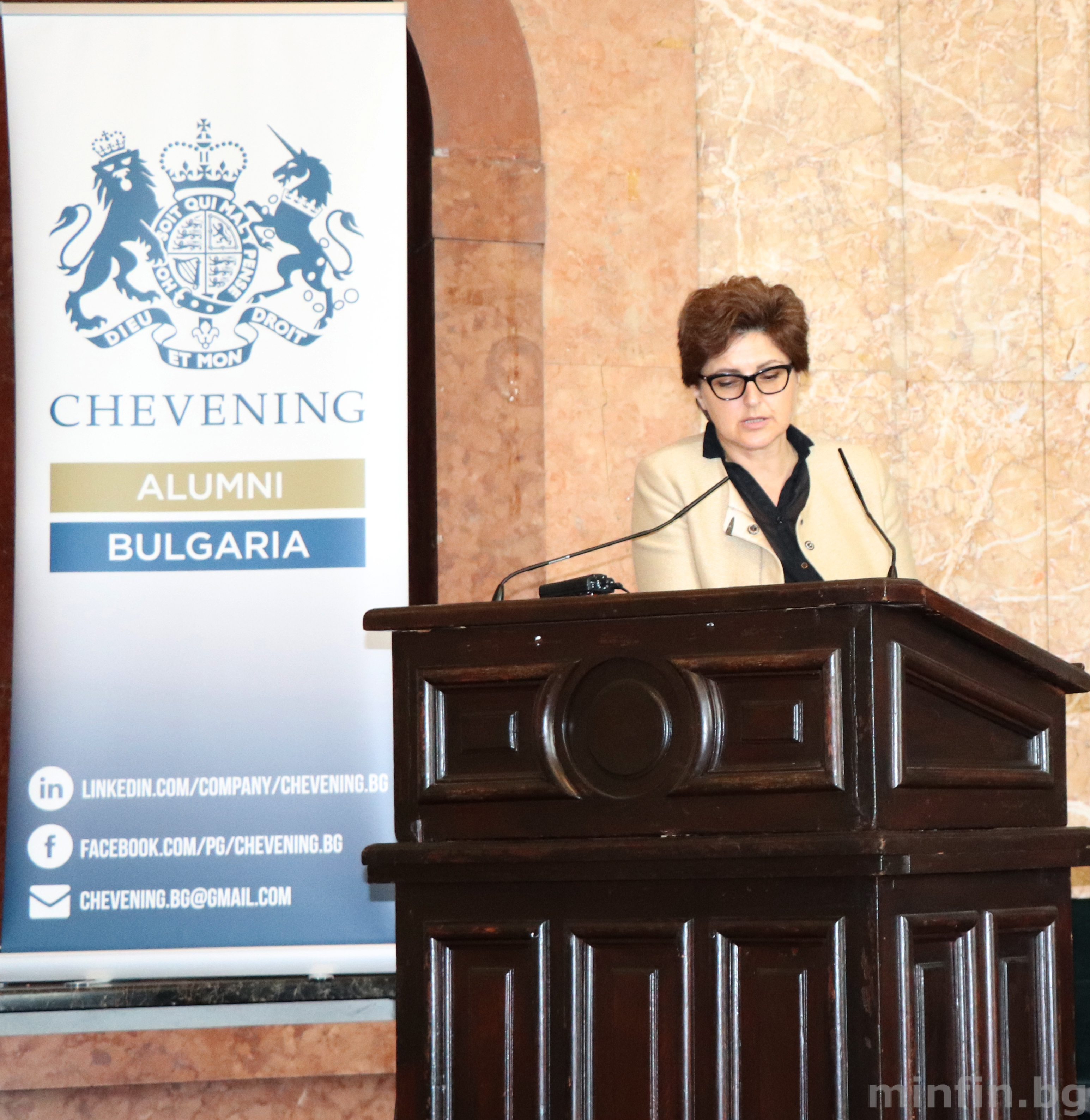DEPUTY MINISTER MARINELA PETROVA PRESENTED THE POTENTIAL ECONOMIC AND FINANCIAL EFFECTS OF BREXIT ON BULGARIA

19.06.2018
Deputy Minister of Finance Marinela Petrova took part in a discussion on the impact of Brexit on Bulgaria. The event was held at the Sofia University and was organised by the Bulgarian Chevening Association. During the discussion, Marinela Petrova commented the potential direct and indirect effects of Brexit on the European economy and in particular on the Bulgarian one.
“Until the end of this programming period, i.e. by end-2020, we do not expect any significant impact on the budget of the European Union that would affect our country, insofar as all countries that have already started the implementation of this framework are also committed to make the relevant contributions to the EU budget,” said Deputy Minister Marinela Petrova during her statement. She reminded that the negotiations on the Union’s multi-annual financial framework for the next financial period were starting at the moment and in that sense one could expect a financial shortfall in the EU budget, which could be partially overcome by an increase in the national contributions, while seeking new sources of funding for the European budget. In her view Bulgaria would not face serious difficulties as a result of a potential increase in the country’s contribution.
Marinela Petrova quoted data of the Ministry of Finance, according to which in terms of the bilateral trade we do not expect any significant influence on the overall economic situation in the country, especially on the gross domestic product. This is due to the fact that as a share of our exports and imports Great Britain takes the 16th and 11th place, respectively, and the volumes are not so high as to have a significant effect on the economy as a whole. She pointed out that “as regards investment, in the past years after the crisis we have actually witnessed a negative investment and financial flow to Bulgaria, which means that we should not have any serious imbalances due to Brexit. However, the amount of accumulated British investment in Bulgaria is around EUR 2 billion, or approximately 5% of all foreign direct investment in the country,” she added.
As regards the impact on workforce and employment in the country, the Deputy Minister of Finance noted that according to data of the British services the number of registered employed Bulgarian citizens, long-term residents in Great Britain, was around 84 thousand in 2017. She explained that, given the state of play of the negotiations on Brexit, “we do not expect any major disturbances which would lead to the exit of work force from Great Britain or any significant influx of work force to Bulgaria”. She expressed her view that even if Great Britain set some sort of a barrier to the employment of workers from countries such as Bulgaria, the migratory flow would rather direct to other EU countries where remuneration of labour was relatively higher than in Bulgaria for the relevant category of labour. Marinela Petrova added that the effect on employment also influenced the cash payments, but there, again, we did not expect any significant impact on our economy, since at present transfers from abroad were not a substantial amount – approximately 0.1% of the GDP of Bulgaria.
With regard to tourism, Deputy Minister Petrova sees some risks due to the fact that visa or other restrictions to the free movement of people from Great Britain to the European Union are likely to be introduced and this would put us in a relatively more unfavourable position, strengthening our competition with other non-EU countries. She pointed out that the Ministry of Finance did not expect any significant impact on the banking sector, too, in so far as there were no registered banking institutions from Great Britain operating on the territory of Bulgaria. In her view, in the longer term one could expect some effects in relation to European regulations.